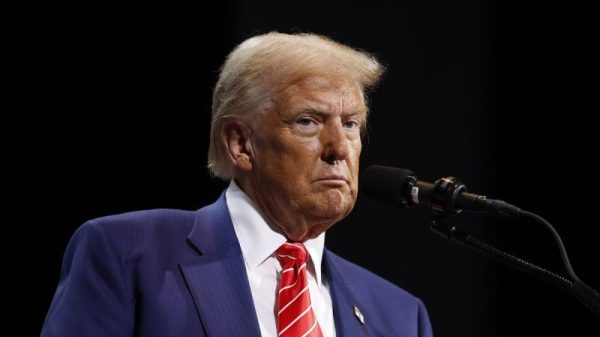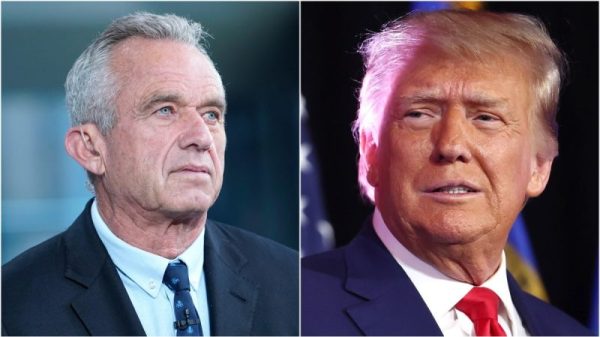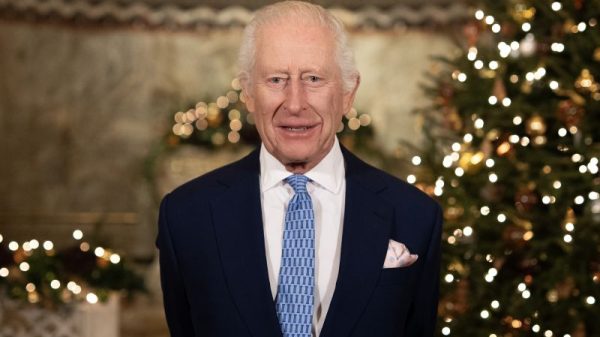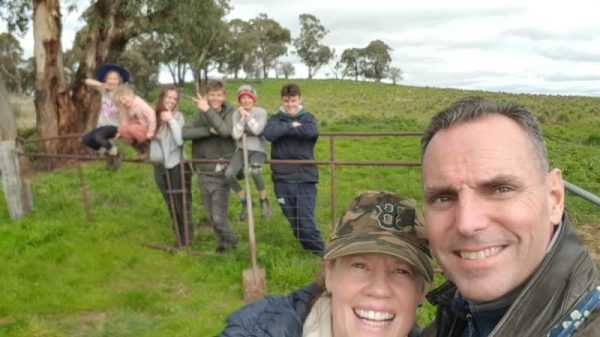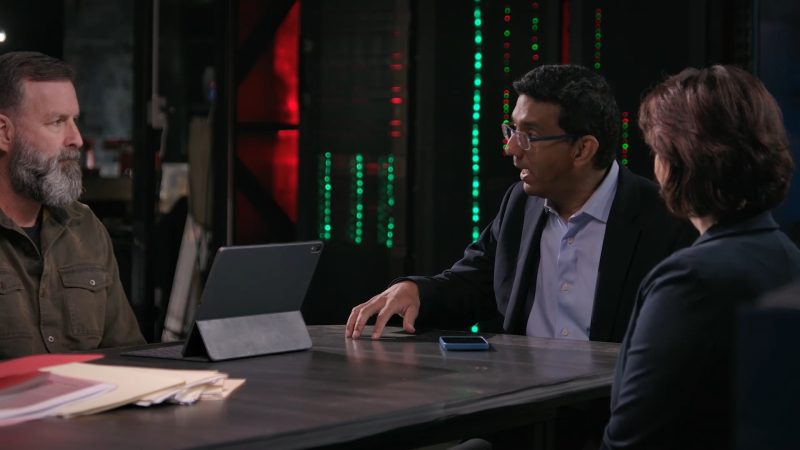When identifying the individuals most responsible for convincing supporters of Donald Trump that the 2020 election was stolen, no one surpasses Trump himself. But one could argue that the second person on the list is filmmaker and right-wing activist Dinesh D’Souza, whose 2022 film, “2000 Mules,” reinvigorated unsubstantiated allegations about voter fraud — and earned him an enormous sum of money in the process.
D’Souza’s fraud allegations were adapted from a group called True the Vote, which has been in the “election protection” industry for some time. The film alleges that cellphone geolocation data allowed True the Vote to identify a ring of people who collected and submitted ballots. The film doesn’t show this data, though, save for one map depicting a purported ballot “mule” near Atlanta. Instead, it relies on publicly available surveillance footage captured at ballot drop boxes, which D’Souza claimed in the movie and in an interview with The Washington Post depicted solely those who’d been identified as “mules” who visited numerous drop boxes.
There is literally no reason to believe any of this. No one has ever been identified as part of such a ring, despite the purported “evidence.” The surveillance footage never actually shows anyone going to more than one drop box to deposit a ballot. In fact, only rarely does it show anyone depositing more than one ballot. The map of a “mule” that it shows was fake, as True the Vote’s Gregg Phillips admitted in an email to The Post. The geolocation data used for True the Vote’s alleged analysis was not sufficiently precise to identify a visit to something as discretely located as a ballot drop box, even if they knew where at a location the boxes were located. True the Vote has declined to share its data publicly or make its alleged whistleblowers known to authorities, triggering state-level condemnation of their work.
And that’s just the technical side. D’Souza made other claims, like that he had estimates of how many ballots were being deposited on average, something he says could be determined from video analysis. That’s nonsense. But it was an important number because it let him present a purported scale of the fraud sufficient to show that Joe Biden didn’t actually win in 2020 — precisely the argument that his market was craving.
All of this still has currency. Despite repeated, robust debunkings of the film’s claims, Trump supporters continue to point to it as valid. Trump himself did so as recently as last month, telling NBC News’s Kristen Welker that “there’s so much proof” of fraud, including “2000 Mules” and “all of the ballot stuffing that’s on tape.”
One reason this all continues to ferment is that there has been no accountability for D’Souza or True the Vote. D’Souza’s already shaky credibility has evaporated outside of the right-wing media; True the Vote never had much in the first place. (Phillips’s insistence in November 2016 that he had evidence of millions of fraudulent votes in that election was never validated.) Elsewhere, claims about fraud have been curtailed in the face of legal challenges (like the Dominion Voting Systems suits against right-wing media outlets). So far, D’Souza has avoided that fate.
But that may be about to change. On Monday, U.S. District Judge Steven D. Grimberg allowed a lawsuit against D’Souza and True the Vote to move forward — a suit that might impose some penalty on the filmmaker for his false presentations.
At issue is the film’s inclusion of footage showing a man named Mark Andrews depositing multiple ballots into a ballot box. This wasn’t fraud, as a state investigation determined; he was submitting ballots for himself and his family. Andrews claimed that he’d received threats as a result of the claims made in the film and in media appearances. Last year, he sued for defamation.
“Defendants asserted in multiple published statements that an image of Andrews dropping off the ballots was such an example of a mule and that Andrews had committed various crimes,” Grimberg wrote in his ruling allowing the suit to move forward. In fact, the movie was released after Andrews was cleared by Georgia authorities, but it still includes footage of Andrews submitting ballots as D’Souza calls it a crime in a voice-over.
Grimberg also noted that D’Souza’s companion book — pulled from shelves at one point to remove false claims — used a still of Andrews positing ballots, which a caption described as “organized crime.” The book was published “after Andrews’s counsel informed Defendants that their portrayal of Andrews was false,” Grimberg wrote.
The stage is set for a ruling against D’Souza and True the Vote, though it isn’t a certainty. But the suit moving forward also means that we may get new evidence that the central conceit of the movie — that geolocation data pointed to mules who were then caught on tape — is false.
When D’Souza spoke to The Post last year, he asserted that everyone shown in the film was a mule, identified by True the Vote as having gone to 10 or more drop boxes. (Why they wouldn’t simply put a bunch of ballots in one drop box is never explained.) So, in theory, there should be some evidence that Andrews did so, if he was a “mule.” The lawsuit’s discovery process, then, might force the defendants to show what they have — or what they don’t.
Attorneys for Andrews hinted at this possibility in a statement.
“After today’s win for our client, we’ll now move into the discovery phase of the case,” Sara Chimene-Weiss of Protect Democracy said. “We’re confident we’ll soon uncover even more evidence that the Defendants fabricated, without any actual facts or underlying data, their lies about our client as part of their broader campaign to sow doubt and spread falsehoods about voters and the 2020 election.”
It’s worth noting, as Grimberg did, that Phillips has already disavowed Andrews as a “mule.” In a May 2022 Post article, Phillips is quoted as saying that Andrews is “not a mule to us” — despite D’Souza insisting, in the Post interview that was published on the same day — that “of course there is a claim being made” that those depicted in the film were multiple-drop-box-visiting “mules.”
The Andrews case may yield a judgment in favor of Andrews, to his benefit. It may also make others wary about citing the movie as a credible presentation of alleged voter fraud in 2020. But it might also go further: demonstrating that there is no connection between the video footage and the purported geolocation data, which the lack of footage of people visiting multiple drop boxes would suggest.
And if there is no geolocation data tied to the video presentation, “2000 Mules” falls apart immediately and completely.














